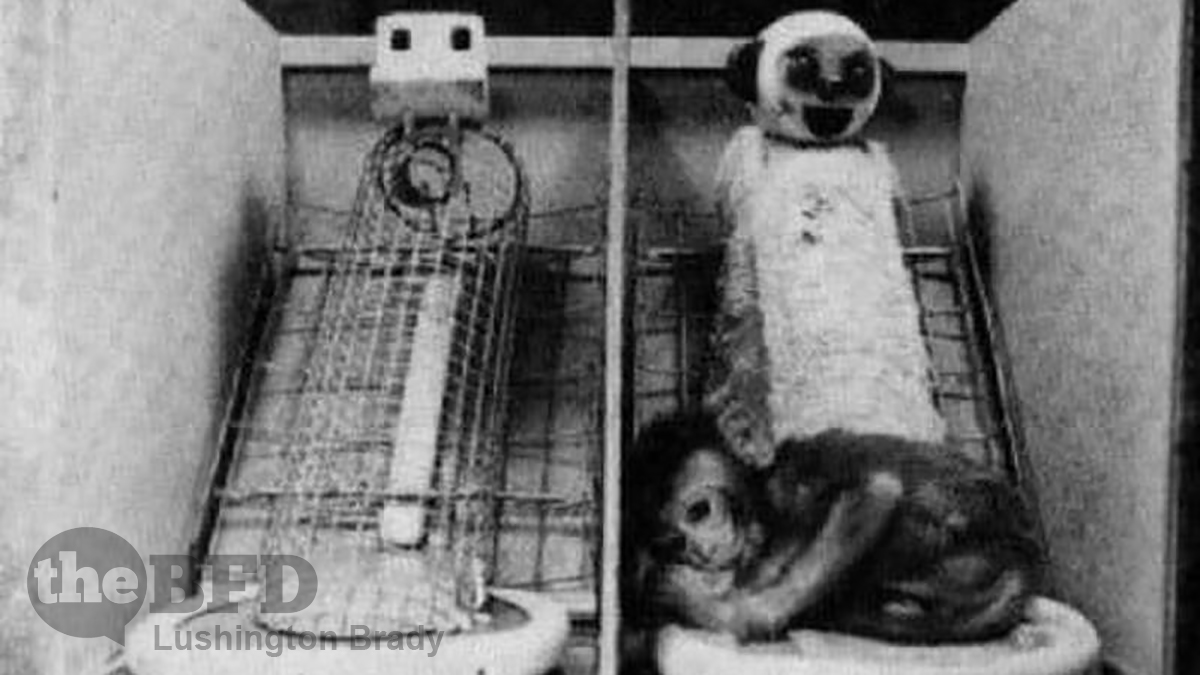Anyone who’s prone to babbling about “IFL Science!” and spouting idiotic memes like, “The overwhelming majority of scientists…” could really do with a rudimentary education in the history of science. Some really bad ideas have been promulgated as “settled science”, and some really appalling people have been prominent scientists.
Walter Gratzer’s The Undergrowth of Science is an eye-opening read about the bad ideas that have occasionally ruled the scientific roost. Some of them, like Lysenkoism, had horrific results.
Another Really Bad Idea that once held sway in science (and science-related philosophy) was Behaviorism. Behaviorism, loosely, was a theory of mind that basically did away with the idea of consciousness and subjective inner experience altogether. All that mattered was outward behaviour.
Now, this might sound fairly harmless, but it lead directly to some of the most appalling ‘experiments’ imaginable. One was the “Little Albert” experiment, where a baby was given soft, fluffy toys – and then frightened by a scientist making a loud bang. To the surprise of absolutely no one with half a brain, the baby soon became terrified at the mere sight of anything soft and fluffy.
Even more horrifying were the “Learned Helplessness” experiments. The theory was that, when an animal is repeatedly subjected to averse stimulus it cannot escape, it eventually gives up trying and becomes utterly helpless.
Again – well, duh.
But no, our intrepid scientists had to prove it – and they did so in the most barbaric way possible. Dogs were placed in metal cages and given powerful electric shocks. The only way they could escape was by jumping into another metal cage – where they were shocked again. After leaping from one to another in a pointless attempt at escaping the pain, the dogs soon simply gave up and lay whimpering in puddles of their own urine, while they were shocked again and again.
I Fucking Love Science!
Perhaps the most notorious Behaviorist experiment, though was psychologist Harry Harlow’s experiments on baby monkeys.
At the time, most scientists believed that infants were motivated to form connections with their mothers out of a need for food. Some psychologists even counseled that parents should not comfort or hold their children too much because it would make them become dependent adults.
Which is an obviously terrible idea. So, Harlow set about to test it. In an equally terrible way.
First, Harlow conducted an experiment in which he raised some infant monkeys in complete isolation.
By “complete isolation” they mean, basically locking them in barrels.
According to the Association for Psychological Science, the isolated monkeys hurt themselves, paced in their cages and stared blankly. When introduced to others, they didn’t know how to interact – and some stopped eating and died.
Hands up who is actually surprised by this finding? Tut, tut, you’re not fit to be scientists, you, you… deniers.
But Harlow wasn’t prepared to stop there. Noticing that the baby monkeys clung to their cloth diapers, he upped the cruelty stakes.
Harlow took baby monkeys and placed them with two surrogate ‘mothers’, one made of wire, and one made of a soft cloth.
Sometimes, the wire mother had a milk bottle, and sometimes the cloth mother did. But no matter what, Harlow found that the baby monkeys spent more time with the cloth mother. When the wire mother had milk, the babies approached it to feed, then returned to the cloth mother. According to PBS, when the cloth mother had milk, the babies ignored the wire mother.
What’s more, the mere presence of a surrogate mother gave the babies more confidence. When placed in a new environment with the surrogate, the monkey would explore. When placed without the surrogate, the monkey would cower in fear, scream and cry.
Harlow also tested how having a peer group might affect baby monkeys. He found that monkeys that grew up with peers and a mother interacted easily with others. Monkeys with cloth mothers did too – but it took more time. However, monkeys with a mother but no peers were fearful and aggressive, and monkeys with neither had no social skills at all.
So, what exactly did Harry Harlow’s experiments establish?
All That’s Interesting
That scientists will go to great lengths and indescribable cruelty to ‘prove’ the bleeding fucking obvious. Sure, Harlow disproved the awful “settled science” of the time – but should it really have taken what seems little different from torture to do so?
It should also surprise no one that Harlow was described as “sarcastic, mean-spirited, misanthropic, chauvinistic and cruel”.
Ironically, perhaps, Behaviorism as a scientific dogma was demolished by a very young Noam Chomsky. That’s right: the guy who thinks that the unvaccinated should be locked up and left to starve, once actually did something decent.

